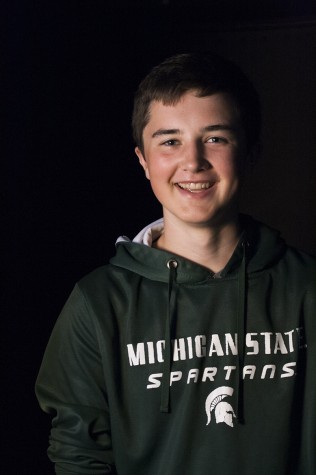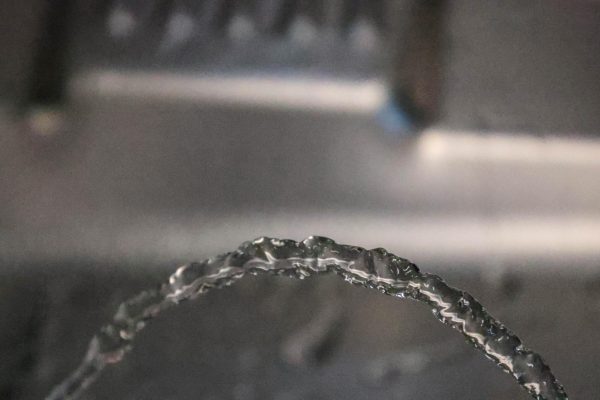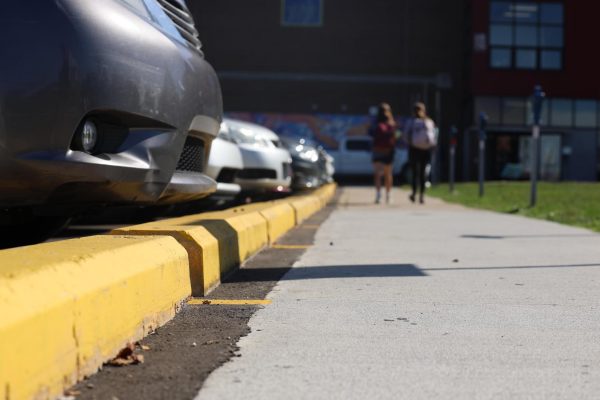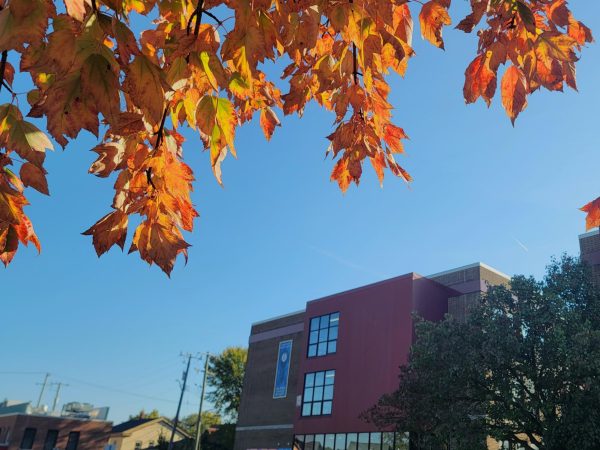Should our police officers be wearing body cameras?
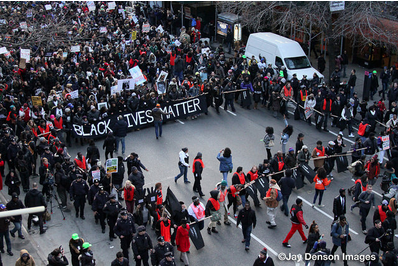
Both Eric Garner and Michael Brown were killed by police on July 17, 2014 and Aug. 9, 2014 respectively. Their deaths have sparked protests about police brutality and the way African Americans are treated in the U.S. today. These protests have taken place across the country.
One particularly large march was the “Millions March NYC”, a march attended by 30,000-50,000 people. Main chants of the march were “Real thugs wear flag pins,” and “Black lives matter.” 29th and 6th avenue in New York were lined for over an hour, with banners and picket signs everywhere.
On a much smaller scale, there have been some protests in Ann Arbor, on the University of Michigan’s campus. While the protests mostly focused around the deaths of these two men, a main goal was to help stop police violence and brutality against blacks in the U.S.
One proposed way to help stop the police violence is having police officers wear body cameras while on duty. In December, President Barack Obama suggested a $263 million dollar law enforcement reform, including $75 million for 50,000 body cameras. The President’s aim for the program was that “Crime goes down, while community trust in the police goes up.” Sadly, the bill was not a part of the House of Representative’s most recent budget. Despite this, many police departments such as Detroit’s and Ann Arbor, are buying $800 to $1200 cameras for their officers on their own.
In December, Ann Arbor’s mayor, Christopher Taylor, announced that Ann Arbor’s Police department is purchasing 86 new devices and making upgrades to in car camera systems. Initial use of cameras in Ann Arbor will be “limited,” said Taylor, “so that Chief of Police, John Seto, will be able to review the policies associated with the use of the cameras, and make sure that they are as efficient and proper as possible.”
Chief Tony Farrar of the Rialto, California police department conducted a year long study of officers with body cameras. The study suggests “More than a 50% reduction in the total number of incidents of use-of-force compared to control-conditions, and nearly ten times more citizens’ complaints in the 12-months prior to the experiment.” Wearing body cameras reduces police abuse of power and complaints about police use of power.
One big concern for officers is forgetfulness. “They have this fear that if they’ve been mandated to wear a camera and then for some reason they’re unable to push the button or forget to push the button, the absence of video evidence will be used as evidence against them that they did something wrong,” said Todd Morris, CEO of BrickHouse Security. While we can all forget things, for officers it could be more costly.
While some police officers have concerns, the public is largely pro-body cameras. A survey by BrickHouse Security found that 72 percent of respondents support use of body cameras. New York City Public Advocate Letitia James said that if used correctly, the cameras could be a “win-win” for the public, transparency, police accountability, improving police community relations and reducing civil liability.
A local police officer said “ Good officers are going to be good officers whether or not there’s a camera on them.” Also “I think it’s actually going to be helpful for officers, not hurtful.” Any video from the cameras can be used in court, which will often times clear any false allegations against a police officer. The problem that some citizens may not realize is that under the Freedom of Information Act “Once that’s videoed it’s available under the under the Freedom of Information Act.” Any information, however pertinent or not, can now be used in court to construe a case and make someone look bad. This also means even if something is expunged from your record it can be looked up and used against you.”
Even though some members of the police are concerned about not using the cameras and the problems it may cause for them, the public is largely pro body camera and studies such as Tony Farrar’s show that the cameras are helping to make for better police activity. Whether you are for, or against, the use of body cameras, if they can help to stop future events such as the Eric Garner or Michael Brown killings, then they are worth it.
Sources:
http://news.yahoo.com/fbi-probe-eric-garner-death-months-223105462–abc-news-topstories.html
http://observer.com/2014/12/tens-of-thousands-protest-eric-garner-death-nypd-in-millions-march/
http://www.policefoundation.org/content/body-worn-cameras-police-use-force
http://www.vox.com/2014/9/17/6113045/police-worn-body-cameras-explained/in/7041840
http://wemu.org/post/city-ann-arbor-giving-police-department-body-cameras
http://www.wmyt12.com/story/26340711/nypd-body-cameras
http://rt.com/usa/214351-millions-march-nyc-timelapse/
http://www.huffingtonpost.com/2014/12/01/obama-police-body-cameras_n_6249436.html
http://www.usatoday.com/story/news/nation/2014/09/12/police-body-cameras/15522059/
